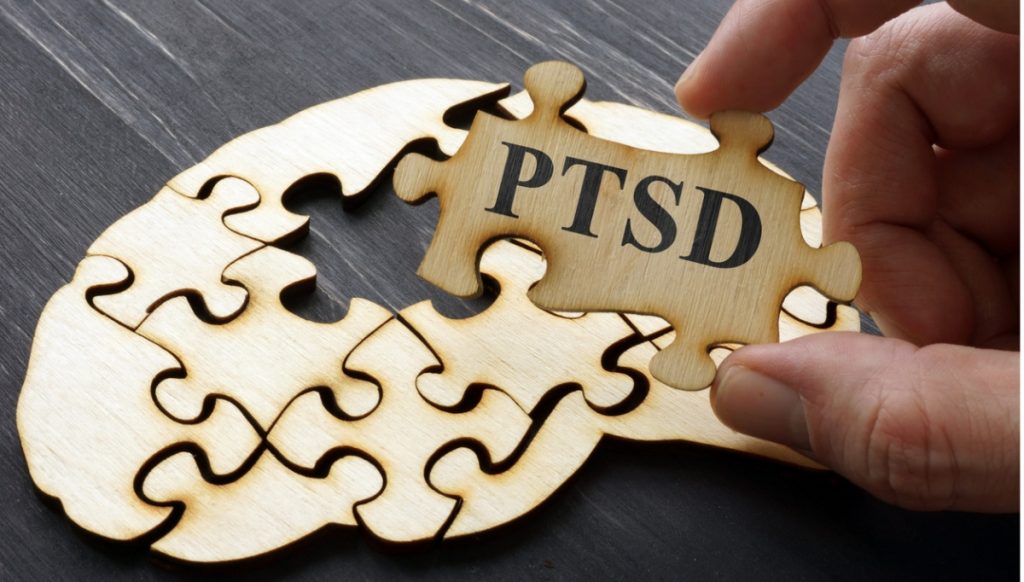Divorce, second only to the death of a loved one, is one of life’s most stressful situations, often leading to a trauma-related disorder. It’s a challenging ordeal, and in some cases, it can lead to actual or threatened mental health disorders like Post-Traumatic Stress Disorder (PTSD).
In recent years, awareness of PTSD has grown. Initially associated with combat veterans and referred to as “shell shock” or “battle fatigue,” Post Traumatic Stress Disorder (PTSD) now encompasses a range of symptoms experienced in response to other traumatic events. These events include natural disasters, car accidents, or sexual violence, often resulting in a stress-related disorder.
If you’re experiencing severe emotional reactions or physical symptoms related to a devastating divorce, you might question whether you’re suffering from PTSD.
To receive a formal PTSD diagnosis, a person must have been exposed to actual or threatened death, serious injury, or sexual violence. This exposure can be direct or through extreme or repeated exposure to the details of the trauma, such as in professional duties or witnessing a close family member experience such trauma.
A PTSD diagnosis also requires symptoms from the following categories:
-
- Intrusion symptoms—These may include nightmares, flashbacks, unwanted memories, or emotional distress when reminded of the trauma.
-
- Avoidance—This involves trying not to discuss or think about the traumatic event or staying away from reminders of it.
-
- Negative changes in cognition or mood—This may include feeling bad about oneself and the world, negative outlook, inability to recall important details of the traumatic event, loss of interest in activities that used to be pleasurable, feeling isolated and alone, or self-blame.
-
- Changes in reactivity or arousal—This may include hypervigilance, increased startle reflex, difficulty sleeping or concentrating, angry outbursts, aggression or irritability, or risky behaviors.
-
- Duration—Symptoms last more than one month.
-
- Functional significance—Symptoms impair normal life, work, activities.
-
- Dissociation/derealization experiences—Feeling detached or like an outside observer; feelings of unreality or distortion.
-
- Delay—Full diagnostic criteria reached at least six months post-trauma (though symptoms may begin immediately).
Due to these specifics, there’s some contention over whether divorce, in and of itself, can cause clinical PTSD. It’s somewhat unlikely that a formal diagnosis will be made based solely on the dissolution of a marriage. However, there’s no question that the emotional impact of divorce can cause PTSD-type symptoms. Fortunately, this is now more widely understood than in the past, and help is available for people experiencing PTSD-like symptoms associated with the painful ending of a relationship.
It’s important to know that additional factors may contribute to the trauma of divorce, making PTSD symptoms more likely or more intense. For example, a PTSD diagnosis from a past (unrelated) incident of violence or abuse within the marriage. Going through a divorce can also increase the likelihood that you’ll experience other kinds of mental health challenges such as anxiety and depression or have feelings of hopelessness and loss of trust. Feeling distressed can impede your ability to manage the logistics of your divorce and focus on the wellbeing of your family.
My esteemed colleague, Dr. Robert Cipriano Jr., has assembled a highly informative YouTube video on the psychological disorder, Post Traumatic Stress Disorder (PTSD). The effects of PTSD and its impact on the family are serious, making a deep understanding of the condition critical.
I invite you to tune in and watch this important video as Dr. Cipriano explains the intricacies of PTSD.
If you’re interested in learning more, I had the opportunity to interview Dr. Cipriano on The Smart Divorce. Click on the link below to listen to this enlightening show.
Did you know that PTSD – Post Traumatic Stress Disorder, affects more than just military service members? PTSD results from exposure to a traumatic experience, such as divorce, which could significantly impact how children’s lives unfold, especially when one or both parents are involved.
Dr. Robert J. Cipriano Jr., a preeminent Licensed Psychologist in Florida who specializes in police psychology and works for one of the largest police departments in the Southeastern part of the United States, shares his knowledge, experience, and expertise on this manageable and treatable disorder.
Drawing on his years of field experience, Dr. Cipriano explains how serious trauma, such as high conflict divorces, can impact an individual’s mental health condition, specifically recognizing signs and symptoms of the disorder, how it manifests, and how to interact with those who may be struggling with it.
Topics include:
-
- Recognizing the symptoms of PTSD and how people associate PTSD with different traumatic events.
-
- Understanding how stigma affects those suffering from PTSD.
-
- The experience of growing up in a household with a parent who has PTSD.
-
- Strategies for helping children cope when a parent has PTSD.
-
- Dispelling the myths and magical thoughts that others may have surrounding PTSD, especially stigma.
-
- Enhancing communication skills & interpersonal relations for those dealing with PTSD.
<H2>Final Thoughts</H2>
Divorce, a traumatic experience in itself, can lead to a complex PTSD condition, especially when children are involved. The entire process, from the legal proceedings to dealing with emotional baggage, can trigger memories and cause symptoms similar to PTSD. It’s important to remember that PTSD isn’t exclusive to military service members; many children and adults can develop PTSD after a life-altering event like divorce.
The fear response, intrusive thoughts, and mood changes that come with PTSD-like symptoms can make the post-divorce period incredibly challenging. However, it’s crucial to seek treatment and not let stigma prevent you from getting the help you need. Whether it’s through therapy, medication, or support groups, there are many ways to manage PTSD-related symptoms.
Remember, you’re not alone in this journey. Many people experience similar symptoms and struggles. Reach out to a mental health professional if you believe you’re suffering from PTSD. It’s never too late to start healing and regain control of your life.
The impact of divorce can be profound, but with the right support and resources, you can navigate this new reality. Whether you’re a parent dealing with the effects of a high conflict divorce or a child trying to cope with the separation, remember that support is available. You’re not alone, and with time, things will get better.
If you believe you have PTSD-type symptoms, it’s vital to seek help. Talk to your family doctor or a mental health professional right away. In addition, you’ll need an experienced family law attorney who understands your circumstances to help ease the emotional burden and make the process go as smoothly as possible.
Conclusion
The emotional toll of divorce can be overwhelming, often leading to PTSD-like symptoms. It’s crucial to remember that you’re not alone in this journey. Many have walked this path before you and have found ways to navigate the emotional storm that divorce can bring.
If you’re experiencing symptoms of PTSD due to your divorce, it’s essential to seek help. Reach out to a mental health expert, and don’t forget the importance of legal support. A knowledgeable lawyer, along with a Certified Divorce Financial Analyst, can provide the guidance you need to navigate the complexities of divorce.
Remember, it’s okay to ask for help. In fact, it’s more than okay—it’s necessary. You don’t have to go through this alone. There are resources available to you, and people who want to help.
If you’re ready to take the next step, I invite you to schedule a Get Acquainted Call. This call is an opportunity for us to discuss your situation and explore how I can support you through this challenging time. Don’t wait—schedule your call today. You’ve taken the first step by educating yourself through this blog post. Now, let’s take the next step together.



